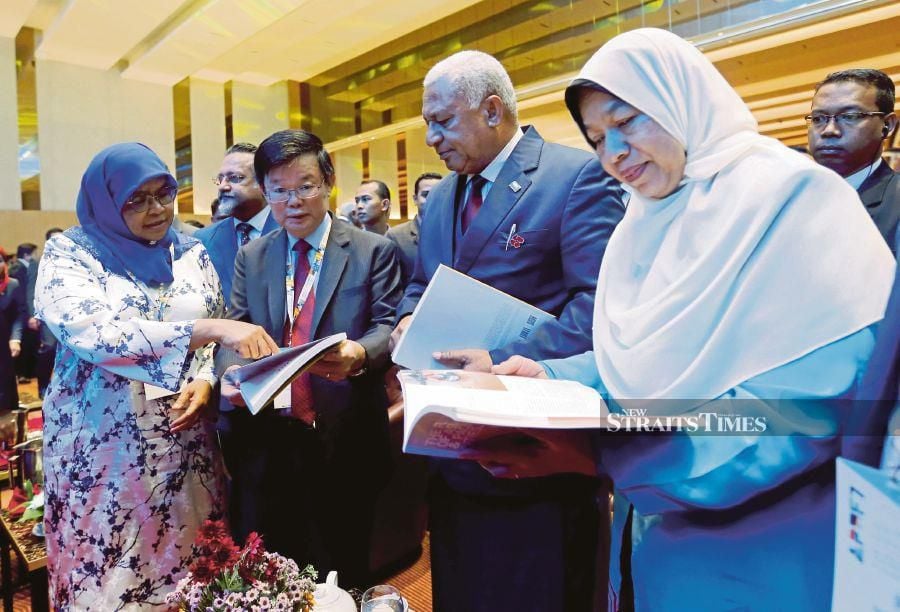IN the last few months of last year, the Sustainable Development Goals (SDGs), the action focused component of the Agenda 2030, the global blueprint agreed in 2015 at the United Nations, were the focus of several initiatives in Malaysia.
From a global summit to an array of national events all centred on SDGs, the country seems set to forge ahead in embedding sustainability and equitable development in its plans and programmes.
The fact that the country is ramping up its interest on the goals through a wide open policy-level conversation, is an indicator of importance that the government and other stakeholders are attaching on them, understanding that they can be instrumental in shaping for better the future of Malaysians.
First, a global forum led by UN Habitat, the Seventh Asia-Pacific Urban Forum (APUF-7) that, held in Penang in mid-October, saw the launch of a major report, “The Future of Asian and Pacific Cities”, making a compelling case on the link between achieving SDGs and the so-called “New Urban Agenda” focused on urban and territorial planning, urban resilience, smart and inclusive cities and urban finance.
A stronger-than-ever realisation emerged on the importance of partnerships and collaborations, the underpinning of SDG No. 17, that is more and more indispensable to lay the foundations for inclusive and sustainable urban spaces in the region.
The Penang Platform for Sustainable Urbanisation, a network of cities administrations, civil society organisations and other stakeholders, will help to “collaborate, integrate, transform and increase” the local efforts pursuit of inclusive and equitable urban development.
We can imagine here officers from cites of different sizes and populations sharing best practices, but also carrying out common pilot initiatives in partnership with civil society and private sector actors, to pursue the common good while achieving equitable development strategies.
The Asia-Pacific Mayor’s Academy was also launched, another complementary tool to share expertise, create new knowledge through an enabling and supporting network that will allow cities’ administrators to strengthen regional synergies.
If the Platform and the Academy will truly come into shape through impactful and cost-effective actions, a radical transformation will be undertaken in the way urban planning and urban governance happen in the region.
Obviously, the government should look at these initiatives with a strong interest, providing not only financial support but also acting as knowledge broker and facilitator, creating bridges among its cities’ administrators, perhaps even nudging the Asean Secretariat to enable such programmes in its Community of Nations and People.
Indeed, the real sustainability of the cities of the region will rely on the involvement, engagement and real interest of their citizens without which ambitious declarations and bold plans will remain empty papers.
The Penang gathering was followed by a series of events like the International Young Leaders Conference organised by UTAR Sungai Long Campus and again, in November, the Malaysia SDG Summit, jointly hosted by the United Nations and the Prime Minister’s Office. The Asean Sustainable Development Summit jointly convened by the Jeffrey Sachs Center on Sustainable Development (JSC) and the Asian Strategy and Leadership Institute was also held.
Two challenges will lay ahead for the decision-makers that
can make or break the momentum created around the SDGs.
The first is about shifting from bold policy planning and mechanism to real actions on the ground, building on this emerging realisation that SDGs could be an enabling tool to support the process of national planning, bringing up national policies that can be matched by localised, grassroots ones.
Central planning for the sake of the country’s sustainability and biodiversity should not stifle people’s imagination for action.
Consequentially, the second challenge is establishing bottom-up ownership and accountability, about ensuring that the people, especially the younger generations, have not only a voice and a real stake in such vital conversation for the future of Malaysia but also take responsibility for action seriously.
We need to muster all the creativity to come up with solutions that first help the common folk realise how vital talking about SDGs can be, creating awareness locally in families, in schools and universities and in communities in the country.
So, on bottom-up actions: we need new partnerships that can support scalable programmes at the bottom, even the simplest ones that can be run, for example, in elementary schools.
After all, SDGs are so broad and comprehensive that school children can come up with small projects, for example, from environmental preservation actions and recycling to spreading the message in their families and communities.
In November, the Selangor government showed what a responsible good governance focused on the SDGs can mean with RM1.5 million for green volunteerism initiatives allocated in its 2020 Budget.
Funding is always important but equally important is harnessing the ideas and spirit of initiative of community organisers, school teachers, NGOs activists and corporate houses.
They are indispensable agents of change if we want to ensure that policy planning turns into transformative actions that change lives.
The views expressed in this article are the author’s own and do not necessarily reflect those of the New Straits Times






